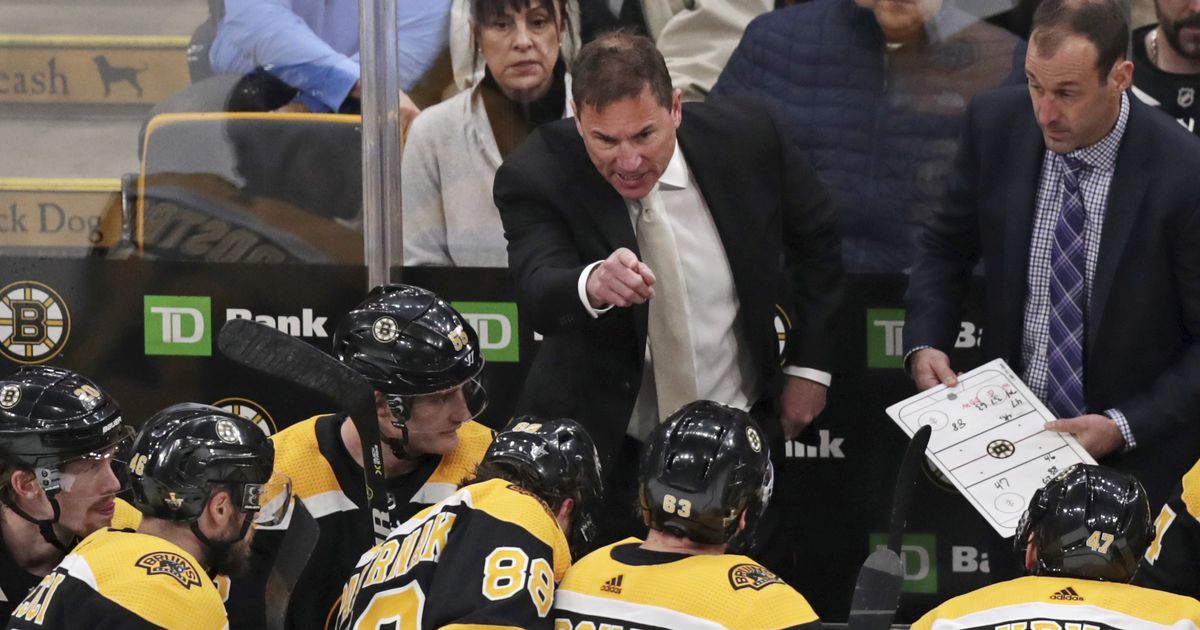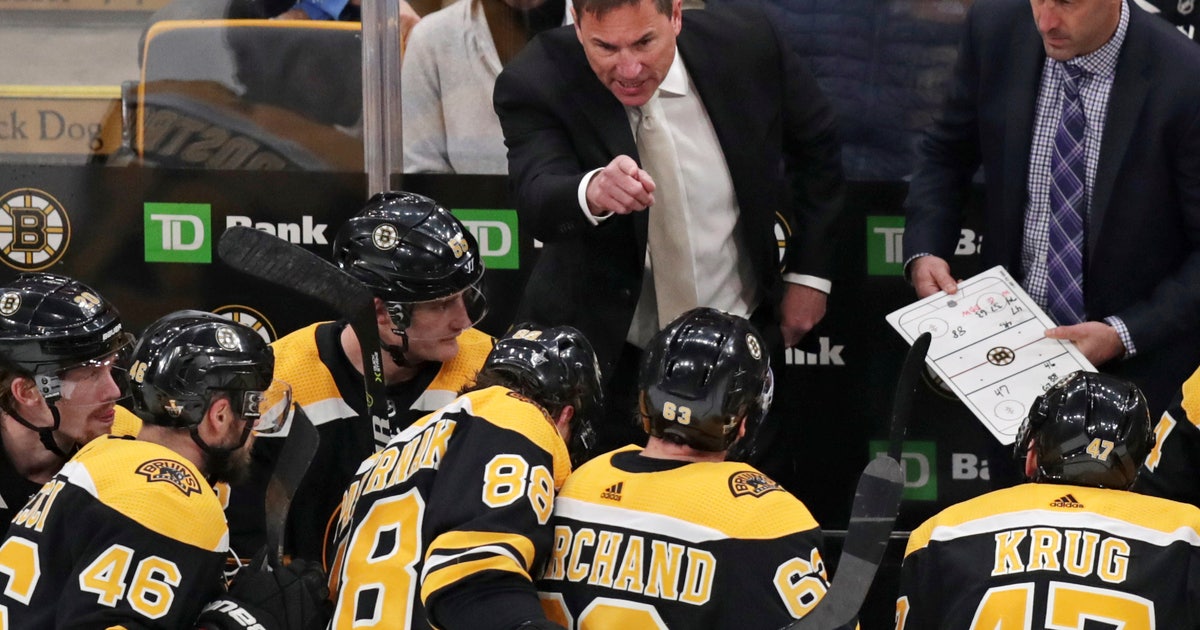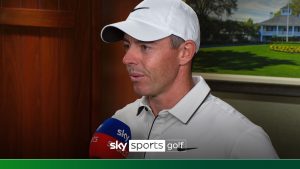On the rebound: coaches Cassidy, Berube in Stanley Cup Final


Bruce Cassidy has come a long way from writing his first NHL practice plan on a napkin.
Craig Berube hasn’t changed a bit from the moment he was fired from his first NHL head coaching job.
Two roads diverged in a crazy world of hockey and brought them to this Stanley Cup Final. Cassidy has guided the Boston Bruins to this point a decade and a half after a disastrous tenure in Washington. Berube took the St. Louis Blues from worst to their first final since 1970 several years after a short stint in Philadelphia.
One of them will become the sixth coach in 12 years to lift the Cup in his second stop as NHL head coach and reward an organization and countless people for giving him another chance.
“The guys that are good in this business, they learn a lot along the way and just continue to improve,” said Vegas general manager George McPhee, who hired Cassidy with Washington in 2002, had Berube as a player and then interviewed him for the Capitals‘ coaching job in 2013.
“In some ways it’s a shame that these guys didn’t get opportunities earlier. But they continue to coach because they’re good at it and they get opportunities at the American (Hockey) League and then get opportunities at the NHL because they deserve it.”
Cassidy’s former Capitals players couldn’t be sure he deserved this after benching respected veteran defenseman Calle Johansson in his last game with the team in 2003. Goaltender Olie Kolzig said Cassidy had “a lack of professionalism on and off the ice” at the time, which ultimately led to his firing 25 games into his second season.
McPhee wonders aloud now if he put Cassidy in a difficult spot coaching a veteran team featuring established star Jaromir Jagr. Looking back, Kolzig believes Cassidy actually did a fairly good job his first season, but the now 54-year-old coach sees some of his shortcomings in the rearview mirror.
“I was young. I had really no NHL experience,” Cassidy said. “So you walk into an NHL locker room and there’s still a little bit of awe in that, ‘Oh, there’s Jagr, there’s so many of these guys that’ve been around.’ So it probably took me a while to just walk in there and say ‘This is what we’re doing.’”
Nicknamed “Butch” after the infamous outlaw, Cassidy rehabbed his reputation with a season as a Chicago Blackhawks assistant, two in junior and then an eight-year run as an assistant and head coach with the Bruins top AHL affiliate in Providence. By the time he got back to an NHL organization with the Bruins, general manager Don Sweeney noticed Cassidy has “evolved a lot” in his confidence, and the growth goes beyond that.
“He’s been through the ringer and put his time in and obviously grew as a coach and a human being,” said Jim Dowd, who played for Chicago when Cassidy was an assistant. “You don’t get to the Stanley Cup finals without doing that. That was just a blip in the road, but I’m sure he learned a ton from that Washington experience.”
Outside factors — such as Cassidy dealing with a rough divorce — might also have adversely affected his time with Washington. Kolzig is glad Cassidy has his life in order now, and he and McPhee are thrilled to see him at the summit of hockey.
“Most guys go through what he went through and you’d never hear from them again,” Kolzig said. “He went back and paid his dues and learned from his mistakes and applied it to the rest of his career. Now he’s on the verge of winning a Cup.”
To do so, Cassidy’s Bruins have to go through Berube’s Blues, who responded mightily after he succeeded fired coach Mike Yeo on Nov. 19. Before winning 29 of their final 43 games to become the seventh team since 1967 to make the playoffs from last in the league after New Year’s Day, they lost 11 of Berube’s first 20 games as interim replacement.
Former teammate and close friend Rick Tocchet will never forget Berube’s reaction over a couple postgame beers following a 6-1 drubbing at the hands of his Arizona Coyotes on Dec. 1.
“It wasn’t like, ‘What did I get myself into?’ or ‘We have no chance to win.’ It was like he had a plan,” said Tocchet, who is now in his second NHL head-coaching job. “Even though they were hitting rock bottom, we just beat them 6-1, he was really decisive what he knew he had to do. I could tell that this guy’s got it handled. It wasn’t like a deer in the headlights look.”
Nicknamed “Chief” for his First Nations heritage, Berube has never had that look — from his career of more than 1,000 games and 3,000 penalty minutes as a team-first role player to his first head job with Philadelphia when he took over three games into the 2013-14 season.
Another former teammate and close friend, Keith Jones, remembers beer and chicken wing nights on the road with Berube and Dale Hunter during their playing days. They would watch and talk about hockey and subconsciously prepare to stay in the game after hanging up their skates.
Jones said Ron Hextall’s worst move as Flyers GM was firing Berube after his first full season because it looked as if he had what it took behind the bench.
“I can’t tell you how impressed I was on his presence behind the bench, his quick eye and understanding which players were going and which were not,” Jones said. “I thought he was terrific in that regard and having a feel for players that had jump in their legs and maybe using them more effectively in that particular game. I thought he was great in just the chess match that goes on with being a head coach. Rarely did I sit upstairs and watch a game and think that he missed something.”
Flyers players respected Berube’s no-nonsense attitude and simple approach of playing smart, defending well and working as a team.
“A lot of coaches will kind of give you the runaround when you’re not getting ice time,” said Scott Hartnell, who played for Berube’s Flyers teams. “Where ‘Chief’ is very honest and he’ll let you know exactly what you’re doing wrong and how to fix it and you’ll be rewarded with ice time afterwards. It’s a very straightforward approach, which I think a lot of players could learn something about that.”
Berube learned some things too even while insisting he hasn’t changed anything about being a coach from his first job to his second.
“I had a lot of experience being a head coach in the minors at that point when I was given a job in Philadelphia as the Flyers head coach, so I was pretty comfortable with my coaching and my abilities,” Berube said. “You learn things and you become a better coach as you go along just from learning things.”
Flyers President Paul Holmgren, who initially hired Berube, recommended to Blues GM Doug Armstrong that he bring him on for some scouting, and it eventually led to an AHL job.
“(That) got Craig back into it at a lower level and he could put in play some of the things he’d learned along the way and some of the new things that he maybe realized he needed to get better at,” Holmgren said.
Armstrong didn’t know Berube before but elevated him throughout St. Louis’ organization and hopes to talk after the series about a long-term deal. Cassidy, in his second full Bruins season, is here because of what he has changed, but Berube is here because of what he hasn’t.
“He’s been very consistent since the day I met him,” Armstrong said. “Craig has opened my eyes to is it’s still a game, it’s still hockey and don’t try and reinvent the wheel. The way he treats the players I think is demanding but respectful — solid communication but not overboard and high-level accountability.”






